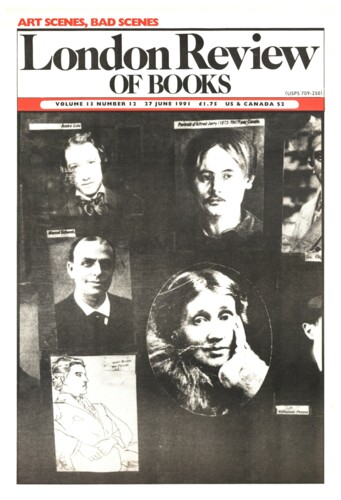Eugen Weber is the leading American historian of the French Right in the period 1890 to 1914. He is also the author of a brilliant study of the growth of a national identity among the rural population of France in the second half of the 19th century and up to the outbreak of the First World War. As befits the personal angle to the main title of the present collection, the author opens with a charming account of his own haphazard course from Bucharest and other places in Romania, via Paris in the late Thirties, to a period in an unnamed English public school in the early Forties, service in the infantry of the British Army in the later stages of the Second World War, and then to graduate work at Cambridge where he nearly became a Medievalist. As in so many cases of historical vocation, accident, chance and good luck resulted in his choice of the study of French nationalism in the twenty years or so before 1914 and in the inter-war years up to 1939.
The present collection of 15 pieces, some of them in the form of reviews published in the Sixties and Seventies, represents the full range and the diversity of Professor Weber’s interests in the field of modern French history. Of outstanding merit are the chapters on the Second Republic, peasant political awareness in the course of the 19th century, the nationalist revival before 1914, and the importance of financial security in the development of literary vocations of the Right. There is also a very moving and intelligent account of the historian Marc Bloch and his tragic death. Some of the other pieces, starting with ‘Nos ancêtres les Gaullois’ and including ‘Left, Right and Temperament’, and thirdly ‘In Search of the Hexagon’, seem rather lightweight and offer at times rather ponderous statements of the obvious.
Much the same could be said of the three concluding pieces of this collection, ‘Nationalism, Socialism and National Socialism’, ‘Jews and Anti-semitism’, and the concluding section on revolution and counter-revolution. At times the author seems to be trying too hard, as he comes out with such statements as ‘History is about men and women who live in time and place,’ or ‘As we know, if Geography is about maps, History is about chaps.’ The present reader also found some of the author’s comments rather intrusive. ‘My guess is ...’ ‘There may be something to this ...’ ‘I am inclined to believe ...’ or ‘More important, it seems to me ...’ And one has the impression that he likes his history to fit. He is also too inclined to have his pointers out – ‘Now we move on again, to the West of France’ – as though he were taking us on his own Guide Bleu. His Francophilia is touching, but at times a trifle overblown: ‘The countryside is lovely, rivers run smooth and green.’
Professor Weber sometimes gives the impression of having been the very first in the field to have discovered La France profonde. Others too, before him, have been concerned to look at French history beyond Paris, and have likewise discovered the enjoyment of working in French provincial records. However, these are perhaps minor criticisms, and My France does indeed represent an eloquent and elegant evocation of the sheer diversity of that vast and ever-revealing country.
Send Letters To:
The Editor
London Review of Books,
28 Little Russell Street
London, WC1A 2HN
letters@lrb.co.uk
Please include name, address, and a telephone number.

